News - Global Food Security
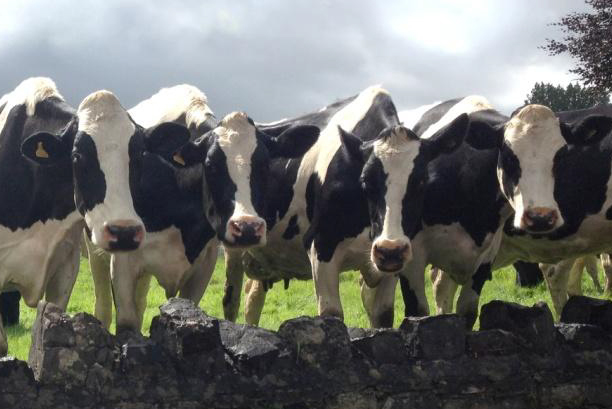 £1 million donation to establish a 'living laboratory' for livestock4 December 2018A groundbreaking 'living laboratory' for livestock will be established at the Bristol Veterinary School thanks to a £1 million donation from the John Oldacre Foundation. The John Oldacre Centre for Sustainability and Welfare in Dairy Production will tackle the global challenge of ethical food security and train the next generation of vets and agriculturalists to help address the major issues facing agriculture.
£1 million donation to establish a 'living laboratory' for livestock4 December 2018A groundbreaking 'living laboratory' for livestock will be established at the Bristol Veterinary School thanks to a £1 million donation from the John Oldacre Foundation. The John Oldacre Centre for Sustainability and Welfare in Dairy Production will tackle the global challenge of ethical food security and train the next generation of vets and agriculturalists to help address the major issues facing agriculture.
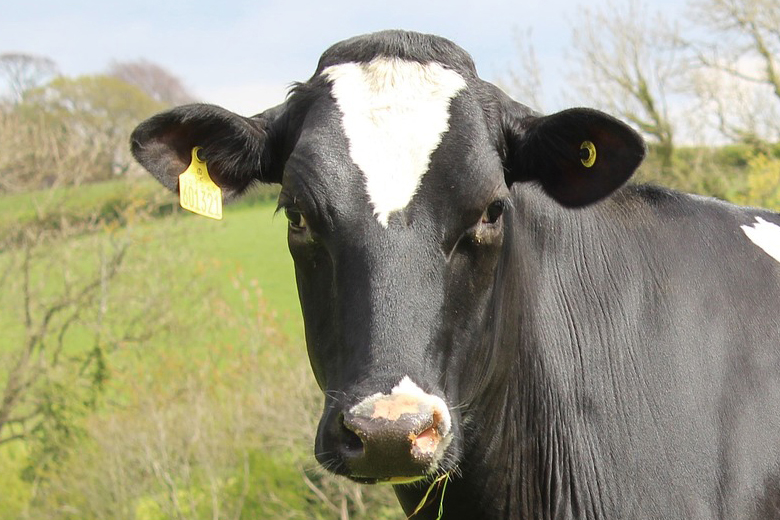 New study sheds light on medicines storage practices on UK dairy farms12 November 2018Researchers at the University of Bristol, supported by the British Veterinary Association, the British Cattle Veterinary Association and the Responsible Use of Medicines in Agriculture (RUMA) Alliance, are calling for veterinary surgeons in the UK to work together with their farmer clients to remove expired and inappropriate veterinary medicines from farms and dispose of them appropriately.
New study sheds light on medicines storage practices on UK dairy farms12 November 2018Researchers at the University of Bristol, supported by the British Veterinary Association, the British Cattle Veterinary Association and the Responsible Use of Medicines in Agriculture (RUMA) Alliance, are calling for veterinary surgeons in the UK to work together with their farmer clients to remove expired and inappropriate veterinary medicines from farms and dispose of them appropriately.
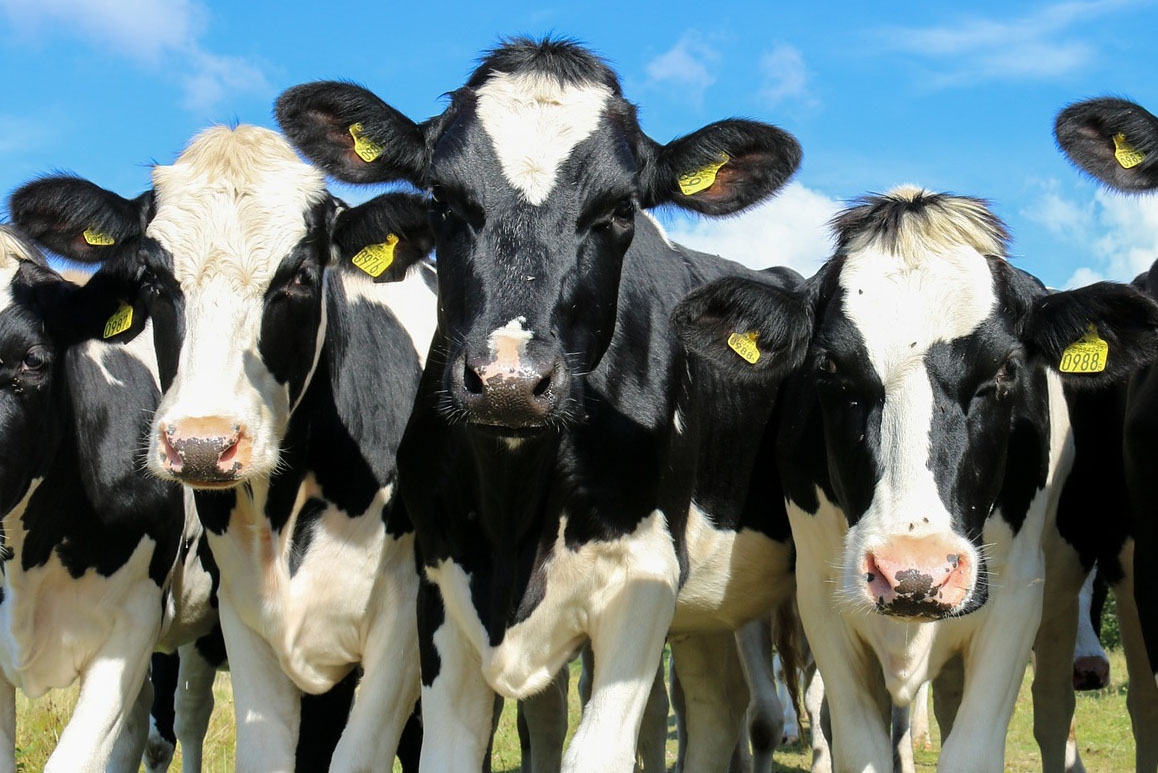 'High-yield' farming costs the environment less than previously thought – and could help spare habitats18 September 2018New findings suggest that more intensive agriculture might be the "least bad" option for feeding the world while saving its species – provided use of such "land-efficient" systems prevents further conversion of wilderness to farmland.
'High-yield' farming costs the environment less than previously thought – and could help spare habitats18 September 2018New findings suggest that more intensive agriculture might be the "least bad" option for feeding the world while saving its species – provided use of such "land-efficient" systems prevents further conversion of wilderness to farmland.
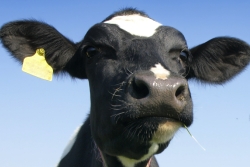 Pioneering animal welfare approach with AssureWel16 October 2018New guidance outlining a pioneering new approach for farm assurance schemes, retailers and farmers to improve animal welfare has been released following a six-year project with the Soil Association, RSPCA and University of Bristol.
Pioneering animal welfare approach with AssureWel16 October 2018New guidance outlining a pioneering new approach for farm assurance schemes, retailers and farmers to improve animal welfare has been released following a six-year project with the Soil Association, RSPCA and University of Bristol.
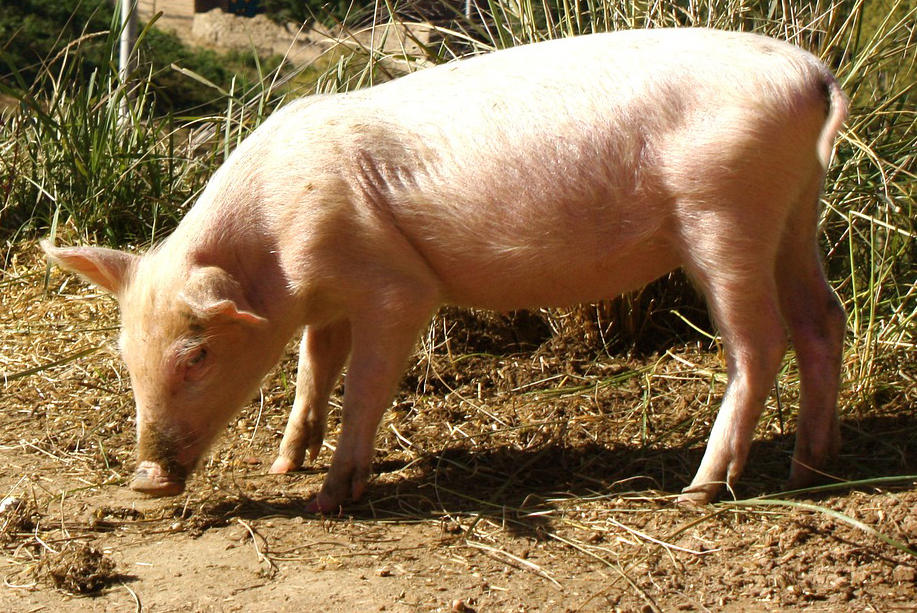 China’s “livestock revolution” demands “new transition”24 July 2018Demand for animal protein and increasing wealth fuelled a tripling in the domestic production of livestock in China between 1980 and 2010, and the rise, despite some improvements in efficiencies at the farm level, had significant impacts on environmental sustainability, nationally and globally.
China’s “livestock revolution” demands “new transition”24 July 2018Demand for animal protein and increasing wealth fuelled a tripling in the domestic production of livestock in China between 1980 and 2010, and the rise, despite some improvements in efficiencies at the farm level, had significant impacts on environmental sustainability, nationally and globally.
 Bristol Veterinary School’s AMR Force wins Antibiotic Guardian Award4 July 2018Bristol Veterinary School’s AMR Force research group has won a prestigious award at this year’s Antibiotic Guardian Awards in recognition of the group’s achievement in tackling antimicrobial resistance (AMR).
Bristol Veterinary School’s AMR Force wins Antibiotic Guardian Award4 July 2018Bristol Veterinary School’s AMR Force research group has won a prestigious award at this year’s Antibiotic Guardian Awards in recognition of the group’s achievement in tackling antimicrobial resistance (AMR).
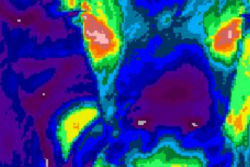 Bristol researchers win EPSRC fellowship to develop AI for early disease diagnosis in calves22 June 2018Two researchers at the University of Bristol have been awarded a joint Engineering and Physical Sciences Research Council (EPSRC) UK Research and Innovation (UKRI) Fellowship to investigate early disease diagnosis in dairy calves using artificial intelligence (AI) methods.
Bristol researchers win EPSRC fellowship to develop AI for early disease diagnosis in calves22 June 2018Two researchers at the University of Bristol have been awarded a joint Engineering and Physical Sciences Research Council (EPSRC) UK Research and Innovation (UKRI) Fellowship to investigate early disease diagnosis in dairy calves using artificial intelligence (AI) methods.
 Bristol researchers to benchmark medicine use across UK beef farms14 June 2018Researchers at the University of Bristol are to quantify and compare farm animal medicine use within and across UK beef operations. The project aims to help demonstrate and communicate the gains made to consumers, processors, retailers and policy makers.
Bristol researchers to benchmark medicine use across UK beef farms14 June 2018Researchers at the University of Bristol are to quantify and compare farm animal medicine use within and across UK beef operations. The project aims to help demonstrate and communicate the gains made to consumers, processors, retailers and policy makers.
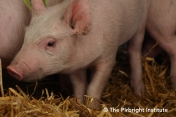 Pig immunology comes of age: killer T cell responses to influenza17 May 2018Researchers from The Pirbright Institute, University of Bristol, Cardiff University and University of Oxford have generated tools that allow scientists to understand a vital area of the pig immune system which was previously inaccessible.
Pig immunology comes of age: killer T cell responses to influenza17 May 2018Researchers from The Pirbright Institute, University of Bristol, Cardiff University and University of Oxford have generated tools that allow scientists to understand a vital area of the pig immune system which was previously inaccessible.
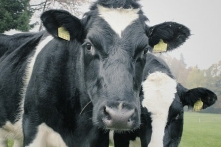 Bristol Vet School at the forefront of combatting antimicrobial resistance28 April 2018Researchers from the Bristol Veterinary School at the University of Bristol are leading the way with farmers to combat and change antimicrobial (AM) use on farms. Antimicrobial resistance - or AMR - is a global threat, with an estimated 700,000 people dying from resistant infections every year.
Bristol Vet School at the forefront of combatting antimicrobial resistance28 April 2018Researchers from the Bristol Veterinary School at the University of Bristol are leading the way with farmers to combat and change antimicrobial (AM) use on farms. Antimicrobial resistance - or AMR - is a global threat, with an estimated 700,000 people dying from resistant infections every year.
 Healthy soil lifts animal weight17 April 2018Managing soil by well-designed grazing is key to an animal's growth and wellbeing shows new research linking soil health, pasture value and sustainable production.
Healthy soil lifts animal weight17 April 2018Managing soil by well-designed grazing is key to an animal's growth and wellbeing shows new research linking soil health, pasture value and sustainable production.
 Bovine TB infection depends on feedback between cattle and badgers14 May 2015Bovine tuberculosis (BTB) is an infectious disease affecting cattle and badgers. New research from the Universities of Bristol and Cambridge has found that BTB is most likely to be nearly under control in both species taken in isolation, however together, control is likely to be considerably more challenging.
Bovine TB infection depends on feedback between cattle and badgers14 May 2015Bovine tuberculosis (BTB) is an infectious disease affecting cattle and badgers. New research from the Universities of Bristol and Cambridge has found that BTB is most likely to be nearly under control in both species taken in isolation, however together, control is likely to be considerably more challenging.
